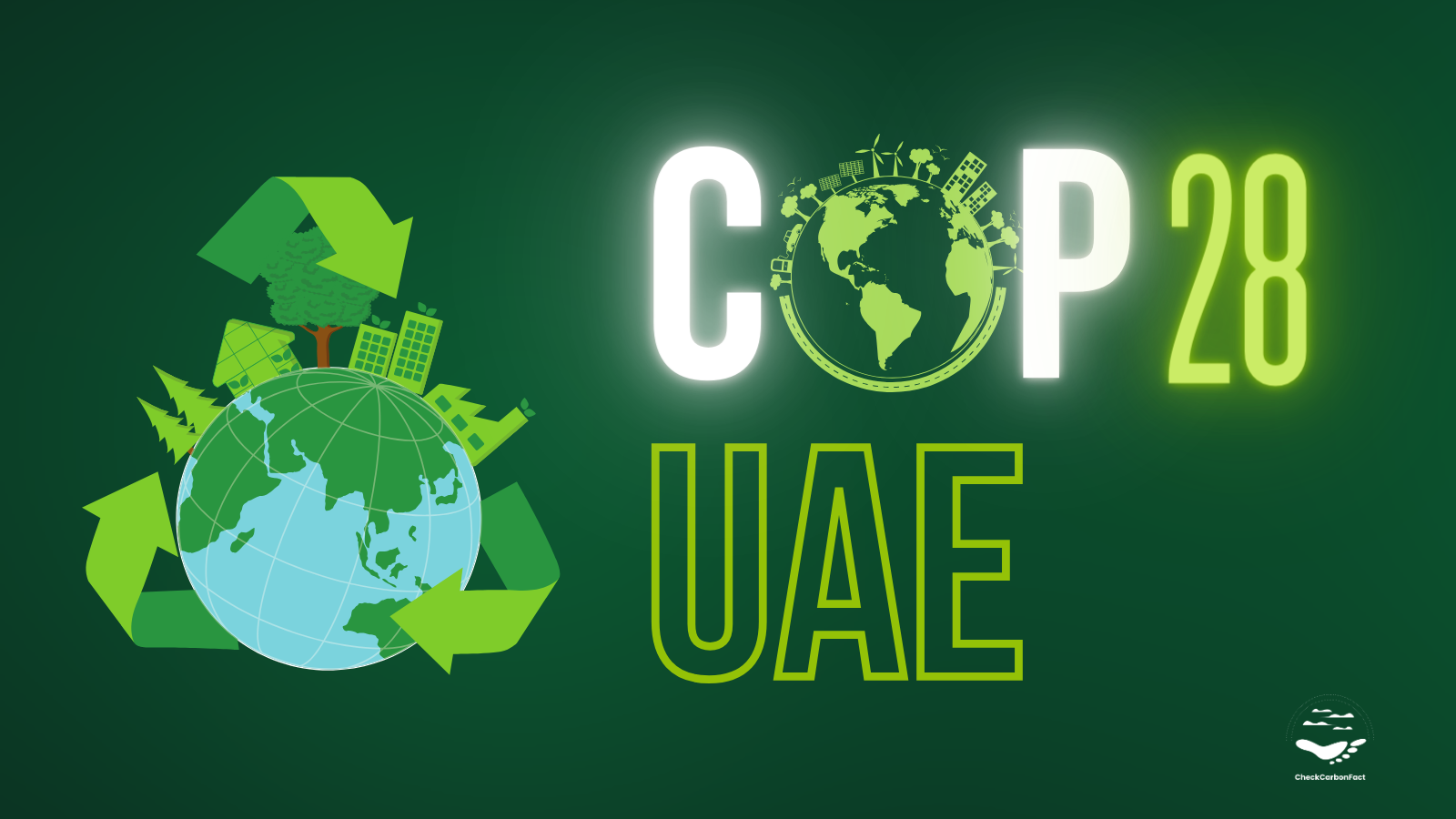The 28th session of the Conference of the Parties, more commonly known as COP28, which was held in Dubai, United Arab Emirates, was a pivotal moment in the ongoing global efforts to address the climate crisis. With a record-breaking number of participants, including heads of states, government officials, climate science experts, and industrial leaders, the conference unfolded against the backdrop of the IPCC’s stark warning in their sixth assessment report: act now, or face irreversible consequences.
Setting the Stage: Understanding COP28 and Its Significance
COP28, the 28th session of the Conference of Parties, serves as the 2023 United Nations Climate Change Conference, continuing a tradition that began in 1995. This global gathering, convened under the United Nations Framework Convention on Climate Change (UNFCCC), brings together leaders from governments, businesses, NGOs, the scientific community, and civil society worldwide. Its primary purpose is to address and devise solutions for the monumental challenge of climate change, recognized as the foremost challenge of the 21st century.
One of the most significant outcomes of previous COPs is the Paris Agreement, established during COP21 in 2015. This landmark accord, endorsed by 195 out of 199 parties, commits nations to reducing global greenhouse gas emissions and limiting the increase in global temperatures to 2 degrees Celsius. This is above pre-industrial levels, with an ideal target of 1.5 degrees Celsius. The Paris Agreement marked a pivotal moment, initiating a global shift towards achieving net-zero emissions and prompting nations worldwide to take tangible steps in climate action.
During the COP28 sessions, several issues of importance were raised. Some of the most critical are discussed in the coming paragraphs.
Climate Finance: Navigating Shortfalls and Building Trust
At the 2009 COP15 in Copenhagen, developed countries collectively pledged to mobilize $100 billion annually by 2020 for climate action and mitigation efforts in developing nations. However, there has been a serious default in keeping to this commitment. In 2020, this adaptation funding reached only $83.3 billion instead of the targeted $100 billion.
The persistent failure to meet these funding goals did not go unnoticed at the COP. The discussions at COP28 underscored the urgent need for trust and equitable distribution of funds to effectively combat global warming. The discrepancy in financial commitments created an atmosphere of mistrust among COP signatories, highlighting the imperative to address these disparities.
Navigating the Fossil Fuel Challenge at COP28
Fossil fuel which includes oil, natural gas, and coal production contribute significantly to the alarming 75% of global emissions. Remarkably, only the phasing out of coal witnessed a commitment at COP27, leaving much to be desired. Climate experts and scientists consistently emphasize the urgency of eliminating fossil fuel extraction, fostering hope that COP28 would yield a firm commitment.
However, the anticipation for a decisive stance on phasing out fossil fuels, heightened by the unmet expectations of COP27, loomed large at COP28. Despite being responsible for such a staggering amount of global emissions, fossil fuels remained a contentious and challenging topic in negotiations. While China and the U.S. raised hopes by committing to a substantial increase in clean energy, the road to consensus proved arduous.
Global Stocktake: Unveiling Climate Disparities and Shaping Action
COP28 marked a crucial moment in evaluating Paris Agreement goals, emphasizing the widening gap in meeting targets and the necessity for more robust climate plans. The Global Stocktake (GST) at COP28, a key aspect of the Paris Agreement, revealed that current commitments fall short, jeopardizing the goal of limiting global temperature rise to 1.5 degrees Celsius.
To achieve this, a 42% reduction in emissions below 2010 levels by 2030 is necessary, but current Nationally Determined Contributions (NDCs) only project a 14% reduction. Financial constraints, especially for developing nations facing rising interest rates and debt distress, underscore the need to rethink the global financial system for better support of climate action. Experts advocate for restructuring to enable adequate investment in climate change measures by developing countries
Critical Outcomes
COP28 faced tension from the start due to a controversial lead-up and a record presence of fossil fuel lobbyists. Concerns heightened when the initial draft released on December 11, 2023 omitted any mention of fossil fuels, a result of strong opposition from OPEC and allies. However, extended discussions and compromise eventually led to historic progress, averting initial fears of achieving no meaningful outcomes at the conference.
Historic Agreement on Fossil Fuels
COP28, overshadowed by controversy and fears of fossil fuel lobbying, engaged in intense negotiations resulting in a historic agreement. The final Global Stocktake, adopted on Wednesday 13th December, represents the first unified international call to “transition away” from fossil fuels and “phase down” coal use.
Although hailed as a positive step, critics argue that the agreement’s language, particularly “transition away,” lacks the specificity of “phasing out” fossil fuels, creating potential loopholes. Concerns also arise from references to unproven carbon capture and storage technology.
Despite imperfections, the agreement’s wording played a crucial role in gaining acceptance from OPEC countries, marking a significant milestone in the global movement to reduce reliance on fossil fuels.
Loss and Damage Fund Framework Adoption
At COP28, the adoption of the Loss and Damage Fund framework marked a significant milestone in the global effort against climate change. This was a build up from the groundwork laid at COP27.
The unanimous approval of the fund’s establishment following transitional committee recommendations was met with applause, yet concerns emerged over the insufficient financial commitments. Despite several countries pledging a total of $700 million, critics highlighted the vast disparity between this amount and the annual $400 billion climate change damage, emphasizing that the pledges cover a mere 0.2% of the required funding.
Notable contributors included the UAE, Germany, France, Italy, the UK, the US, Japan, Denmark, Ireland, the EU, Norway, Canada, and Slovenia. Beyond funding, discussions at COP28 also revolved around the operational aspects of the fund, with the board scheduled to finalize the framework and initiate operations in January.
Global Stocktake and Paris Agreement Discussion
The conference marked a critical juncture in evaluating Paris Agreement goals and showcased a widening gap in meeting targets. The Global Stocktake (GST), integral to the Paris Agreement, revealed that current national commitments fall short, putting the world off course to limit global temperature rise to 1.5 degrees Celsius. To achieve this target, emissions must be cut by 42% below 2010 levels by 2030, but current Nationally Determined Contributions (NDCs) only project a 14% reduction.
Financial constraints, particularly for developing nations, loomed large in discussions. Rising interest rates in advanced economies increased debt burdens, limiting resources for climate change mitigation.
Around 70 countries, according to the International Monetary Fund (IMF), are in “debt distress,” necessitating a reevaluation of the global financial system to better support climate action. It was concluded that restructuring is crucial to enable developing countries to invest sufficiently in climate change measures.
Conclusion and Looking Ahead to COP29
COP28, despite its controversies and shortcomings, marked historic progress in acknowledging the necessity of transitioning away from fossil fuels. As attention turns to COP29 in Azerbaijan, the global community faces both urgency and opportunity. Tightening loopholes, solidifying commitments to renewable energy, and establishing ambitious climate finance goals are essential for a more sustainable and green future. COP29 becomes a critical juncture for concrete actions against climate change and a renewed commitment to building a resilient and equitable world.
Found it interesting and would like more in the mail?




